Congrats on your college degree! Hope you weren't expecting a full-time job.
On America's broken promise to college graduates
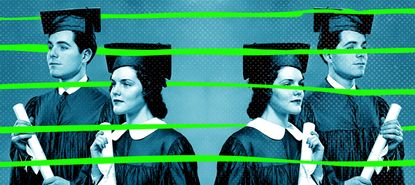

Many hundreds of thousands of young Americans are on the cusp of graduating from college. What sort of job prospects await them?
Sadly, it's not great, as the Economic Policy Institute (EPI) explains in a new paper.
For Americans age 21 to 24 who have a bachelor's degree, and who aren't enrolled in further schooling, the unemployment rate is back down to where it was before the 2008 collapse — around 5.3 percent. On its face, that sounds pretty good! (It's represented by the light blue line in the graph below.) But as EPI points out, there are lots of reasons to view the post-2001 business cycle as a pretty shoddy baseline. The damage from that downturn had not yet been undone when the Great Recession hit.
Subscribe to The Week
Escape your echo chamber. Get the facts behind the news, plus analysis from multiple perspectives.

Sign up for The Week's Free Newsletters
From our morning news briefing to a weekly Good News Newsletter, get the best of The Week delivered directly to your inbox.
From our morning news briefing to a weekly Good News Newsletter, get the best of The Week delivered directly to your inbox.
A better baseline is the boom time of the late 1990s, when unemployment for this cohort got down to 4.3 percent.

More telling still is the underemployment rate (the dark blue line above). This doesn't just include the officially unemployed. It includes people who are employed part-time but who want to be employed full-time and just can't find the work.
It also includes people who have looked for work in the last year as well as just in the last month. Only the latter are counted in the official unemployment rate. That's significant, since the hiring rate for Americans who haven't looked for jobs in the last month is higher than it's been in decades. A bad enough economic crash can throw people out of the job search game entirely, which in turn throws off the unemployment rate. In that case, the economy is not as healthy as a low unemployment rate suggests.
Sure enough, underemployment for recent college graduates remains significantly higher than it was in 2007. And it's a lot higher than it was in the late 1990s.
The gender and race breakdowns are telling, too.
Unemployment for white recent college grads is almost back down to where it was in 2000. For black Americans in this cohort, however, unemployment remains 2.5 percentage points above 2000 levels. Hispanics and Asian Americans face smaller gaps than blacks, but larger than whites.
Unemployment for women in this cohort is just 0.5 percentage points above its 2000 rate, while still 1.5 percentage points above the rate for men. But that doesn't necessarily mean the economy is performing better for recent female grads: Their lower unemployment rate is largely due to lower labor force participation overall. (In other words, more recent female grads who aren't employed haven't looked for work in the last month.)
Furthermore, underemployment rates for men and women in this group remain significantly higher than in 2000, and by roughly similar margins. And while the underemployment gap for all races is higher than the unemployment gap, the differences in the underemployment gaps between races mirror the unemployment numbers.
Remember too that a lot of recent college grads have to take jobs that don't actually require a college degree. This happened even in the late '90s boom: Among college grads age 22 to 27 who were employed in 2000, 38.3 percent had jobs that didn't require their education level.
That number got all the way up to 46.3 percent just after 2008, and was still 42.5 percent as of March of this year. Other research confirms the trend.
In a bit of good news, pay for Americans age 21 to 24 with a college degree is higher today than it was in 2000. But just barely: It's been virtually stagnant ever since the 2001 recession, and dipped noticeably after 2008. Young Americans entering the workforce are only just beginning to make up almost two decades of lost ground.
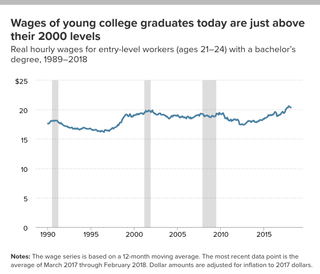
Then there are the gender and race gaps.
Pay for women in this cohort only barely increased since 2000. Pay for men increased a bit more, meaning the gender gap in pay for recent college grads actually grew over this time period. Even worse, pay for black Americans in this cohort collapsed by almost 17 percent over the last 18 years, after briefly achieving parity in 2000. The black-white wage gap among recent college grads exploded over this period. That's consistent with other evidence on the way the Great Recession devastated black communities specifically.
Quite often, skeptics explain away wage and employment gaps between genders and races by suggesting differences in skill, or differences in life path choices. But here we have those same gaps reappearing within the same education level, and among people at roughly the same point in their careers. As EPI notes, it's hard to attribute that outcome to anything other than raw discrimination against women and minorities.
New college graduates certainly aren't the least fortunate Americans. But their situation sheds some useful light on the ways the American economy is still very much broken. And if it's not working for them, it's going to be even worse for others.
Sign up for Today's Best Articles in your inbox
A free daily email with the biggest news stories of the day – and the best features from TheWeek.com
Jeff Spross was the economics and business correspondent at TheWeek.com. He was previously a reporter at ThinkProgress.
-
 Today's political cartoons - November 2, 2024
Today's political cartoons - November 2, 2024Cartoons Saturday's cartoons - anti-fascism, early voter turnout, and more
By The Week US Published
-
 Geoff Capes obituary: shot-putter who became the World’s Strongest Man
Geoff Capes obituary: shot-putter who became the World’s Strongest ManIn the Spotlight The 'mighty figure' was a two-time Commonwealth Champion and world-record holder
By The Week UK Published
-
 Israel attacks Iran: a 'limited' retaliation
Israel attacks Iran: a 'limited' retaliationTalking Point Iran's humiliated leaders must decide how to respond to Netanyahu's measured strike
By The Week UK Published
-
 Are we getting a 'hard landing' after all?
Are we getting a 'hard landing' after all?Today's Big Question Signs of economic slowdown raise concerns 'soft landing' declarations were premature
By Joel Mathis, The Week US Published
-
 What new president Bola Tinubu means for Nigeria
What new president Bola Tinubu means for Nigeriafeature Many question whether 70-year-old will be able to revive ailing economy, heal divisions and provide security
By The Week Staff Published
-
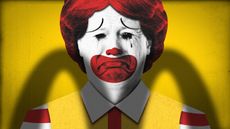 What’s happening at McDonald’s?
What’s happening at McDonald’s?Under the Radar Fast-food chain closed US offices and told staff to work from home while it announces job cuts
By Harriet Marsden Published
-
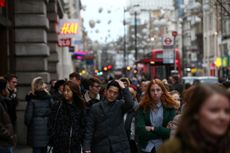 UK avoids recession - but will anyone notice?
UK avoids recession - but will anyone notice?Today's Big Question Think tank says 2023 ‘will feel like a recession for many, regardless of the data’
By Chas Newkey-Burden Published
-
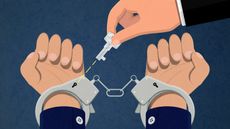 The pros and cons of noncompete agreements
The pros and cons of noncompete agreementsThe Explainer The FTC wants to ban companies from binding their employees with noncompete agreements. Who would this benefit, and who would it hurt?
By Peter Weber Published
-
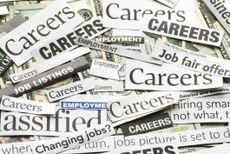 Is 2023 the year of the worker?
Is 2023 the year of the worker?Speed Read
By Devika Rao Published
-
 Britain’s missing workers
Britain’s missing workersIn Depth A large number of working-aged people are ‘economically inactive’ and putting a strain on the UK workforce
By The Week Staff Last updated
-
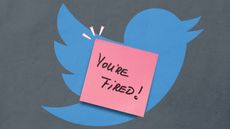 What the Big Tech layoffs mean for the economy
What the Big Tech layoffs mean for the economySpeed Read Tech giants are in crisis. Time to panic?
By Devika Rao Last updated